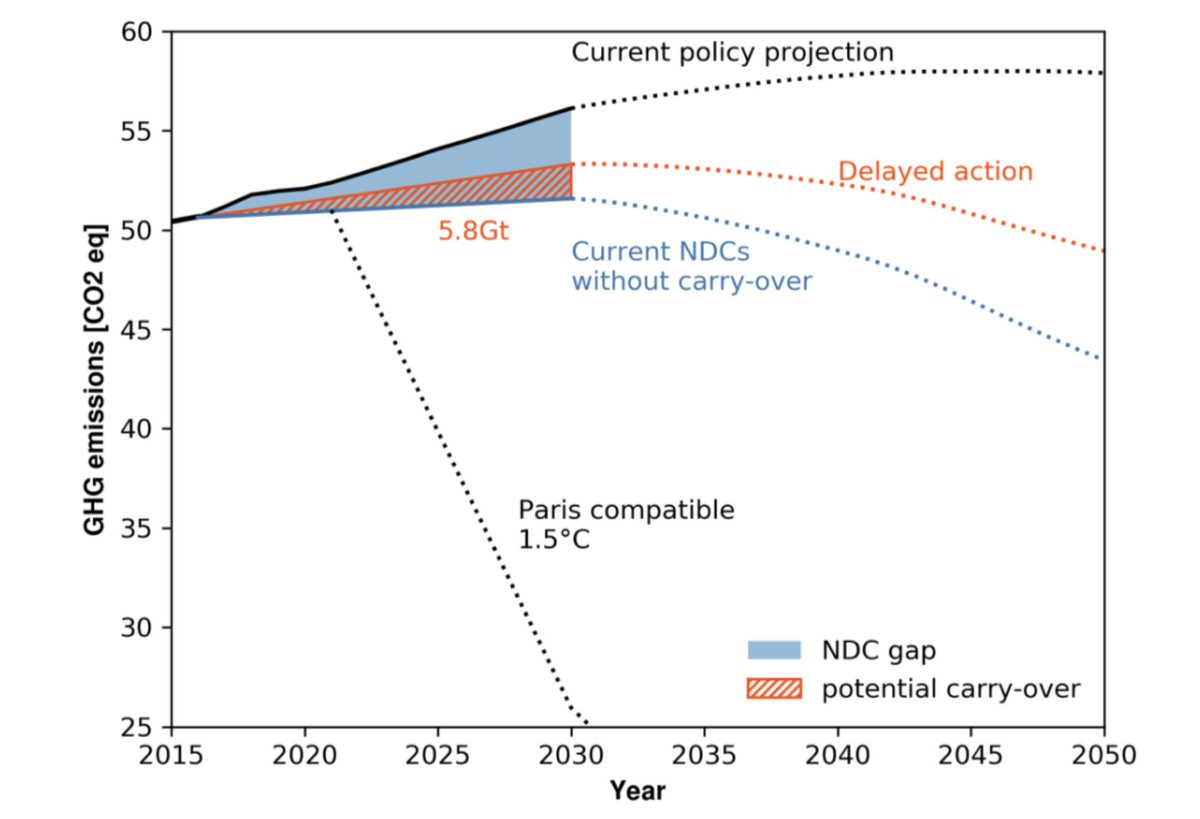The @WMO report and subsequent headlines about the world being about to hit 1.5˚C warning are very concerning and a clear danger sign that we are running out of time for action to reduce emissions. BUT...
A 🧵
/2
A 🧵
/2
While it doesn't mean we have busted the Paris agreement 1.5° limit - because measuring climate involves a 20-year average - it does mean we're getting closer.
/3
/3
A large El Niño projected for later this year would roll the dice further for 2024, as do predictions for this rolling into a super El Niño for 2024.
/4
theconversation.com/global-warming…
/4
theconversation.com/global-warming…
If climate action is ramped up, and the world makes the required emission reductions by 2030 we still have a reasonable chance of limiting warming to 1.5˚C.
We still know what we have to do and we can still achieve this.
The window remains open. But tight.
/5
We still know what we have to do and we can still achieve this.
The window remains open. But tight.
/5
The #ParisAgreement temp goal references human-made warming averaged over 20-30 years, not changes in individual months, seasons, years – not even over a couple of years.
Temp change measured over shorter timeframes becomes subject to shorter-term influences, such as El Niño.
/6
Temp change measured over shorter timeframes becomes subject to shorter-term influences, such as El Niño.
/6
This is why climate science in general, and IPCC reports in particular, assesses human-made long-term temperature change by averaging global mean temperature over periods of at least 20 years – avoiding the influence of these year-to-year natural variations.
/7
/7
But it's a very clear warning sign we’re getting towards very dangerous levels of warming. Looking around the world, we’ve seen temp records broken in Southeast Asia by large margins, massive heat & humidity in east Asia, & Eastern India, now moving toPakistan & west India
/8
/8
In Canada, we're seeing astonishing temperatures & massive bushfires in Alberta.
In Europe, particularly SW Europe & the Iberian peninsula, there's an unprecedented drought unfold, in part due to circulation changes associated with global warming
/9
In Europe, particularly SW Europe & the Iberian peninsula, there's an unprecedented drought unfold, in part due to circulation changes associated with global warming
/9
https://twitter.com/frediotto/status/1654487000592834562?s=46&t=BuCvcqpYkT72lT59KabHeg
But more worringly, there could be a significant component of the warming and drought in the Iberian peninsula due to a slowdown in North Atlantic circulation, forced by warming.
@rahmstorf explains here:
/10
@rahmstorf explains here:
/10
So to repeat: a single year with warming at 1.5° does not mean the climate has “breached” the 1.5˚C warming limit.
But it is a clear danger sign, and one the leaders at the #G7 summit in Hiroshima might be wise to heed.
/11
But it is a clear danger sign, and one the leaders at the #G7 summit in Hiroshima might be wise to heed.
/11
And remember, as @PeteBetts has said, “if we do go above 1.5C, the message is not to give up. It’s to double down. The scientific and economic case is overwhelming…”
/12
www-ft-com.ezp.lib.cam.ac.uk/content/5d3073…
/12
www-ft-com.ezp.lib.cam.ac.uk/content/5d3073…
And lastly, this explainer by @CarlSchleussner and @JoeriRogelj in @CarbonBrief is still relevant today
13/13
carbonbrief.org/guest-post-int…
13/13
carbonbrief.org/guest-post-int…
• • •
Missing some Tweet in this thread? You can try to
force a refresh

 Read on Twitter
Read on Twitter






